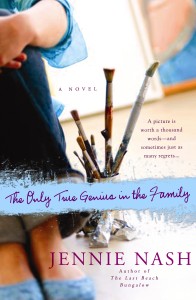 Some handy rules for when, why and how to ask readers to respond to a work-in-progress:
Some handy rules for when, why and how to ask readers to respond to a work-in-progress:
1. Don’t Ask Too Early in the Process
Work that is still incubating is too fragile for critique. Wait until you have a clear vision of your project so that you don’t get swayed by what other people think. I usually ask for feedback when I’ve stopped wondering if people will like my story and start wondering about the way a specific part of the story will play itself out in someone else’s mind – i.e. will people empathize with my narrator in this scene, is this section of dialogue believable?
2. Don’t Ask Too Late in the Process
If you think your story is perfect and that is has the potential to be short-listed for the Pulitzer Prize, don’t bother asking for feedback. You’re too late.
3. Don’t Ask Your Mother, Your Spouse, or Your Best Friend
Your first instinct may be to ask someone who you know will be nice; resist it. Nice is not useful to a writer who wants to be taken seriously. You can always invite your mother/spouse/best friend to rip apart your work – but beware: it’s a bit like letting the genie out of the bottle.
4. Ask Someone Who Has a Keen Critical Eye
What you want is honest, precise and clear criticism. Look for someone who reads this way or approaches the world this way. Perhaps it’s another writer, or someone in your book club, or someone who sits with you on a community board and always has reasonable things to say.
5. Ask for Something Specific
“Tell me what you think” will only get you vague responses. I ask my sister to read my work when I need a reader to ferret out every single error in logic. My brain doesn’t work the way hers does, and I value her skill. I have another friend who can see the possibilities for humor in my work where I see nothing but earnest sentiment, and I ask her to note those places.
6. Include a Deadline
When I ask for feedback, I always include a deadline. If the person is swamped at work or in the middle of reading The Pillars of the Earth for book club, they will decline my request, which is best for everyone. There’s nothing worse than getting feedback on pages I deleted ten days ago.
7. Have a Plan in Place for Evaluating Feedback
I know feedback is good when I immediately think, Darn it! They caught me red-handed. It means my instincts were right about something being half-baked. If, on the other hand, I calmly think, Nope – I don’t agree, then I can safely ignore what my reader has to say. Conflicting comments – one person loves your main character, another loathes her – may simply mean you’re getting people’s attention.
8. Be Prepared for Heartbreak
You want it to hurt. You want to feel like crawling into a dark cave for several days and taking up basketweaving. But remember that it’s much better to know the problems now than to know them later. Later, the news will come from agents, editors, book buyers, book reviewers, and it will hurt much, much more. So take a deep breath, prepare for the pain, and bring it on.
9. Be Prepared to Work
The work I do after getting feedback sometimes feels to me like throwing a deck of cards up in the air and having to re-arrange the stack. I may end up having to jettison 50 pages or re-think a key relationship that doesn’t play out the way I expected it would. It’s hard work. I set aside time, clean out my inbox, roll up my sleeves and dig in.
10. Give Thanks
I couldn’t write nearly as well as I do without the kindness of the people giving me feedback and I try to make sure they always know it.
Jennie Nash is the author of three novels, including The Last Beach Bungalow, The Only True Genius in the Family, and, coming in May 2010, The Threadbare Heart. She is also the author of three memoirs, including The Victoria’s Secret Catalog Never Stops Coming and Other Lessons I Learned from Breast Cancer. She is an instructor in the UCLA Extension Writers’ Program. Learn more about her work at www.jennienash.com and visit her blog about creative inspiration at www.meetyourmuse.blogspot.com.
